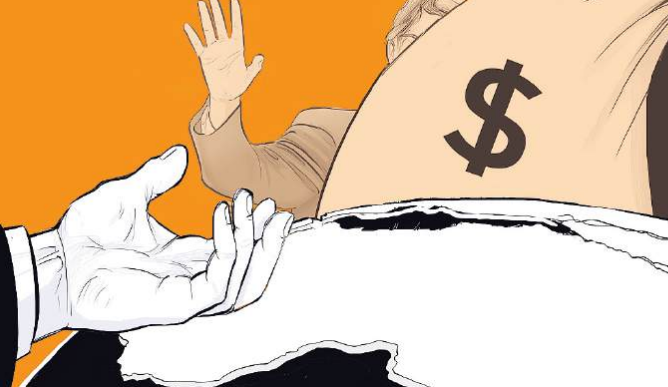
The city lay in ruins. Smoke curled from the wreckage, rising into the sky like silent screams.
Buildings stood half-toppled, streets littered with debris, and the air carried the acrid scent of fire and blood.
But at the centre of it all, standing tall amidst the destruction, was the hero.
The audience cheered. But deep within those ruins, the people did not cheer.
They stumbled through the wreckage, searching desperately for loved ones and shelter.
The villain had ruled them for years, hoarding wealth, exploiting labour, promising a future that never came.
The hero’s arrival had briefly seemed like salvation. But now he was gone. And the villain? He had vanished into the smoke, slipping away like a shadow, perhaps waiting for his chance to rise again.
The people faced the uncertain dawn, understanding a bitter truth: The hero never came to save them. He fought for his own battle, his own victory.
Their suffering had merely been collateral damage in a war they never chose. And so, they stood uncertainly, wondering if they could rebuild or if they were doomed to wait for another hero, another villain, to repeat the same tragic cycle.
For decades, Western nations—particularly the United States through USAID—have positioned themselves as heroes, pouring billions into African aid projects, humanitarian relief and governance initiatives.
However, recent American foreign policy shifts, notably Donald Trump’s ‘America First’ strategy, raise the deeper question: Why, after decades of international support, do many African countries remain dependent on external heroes?
The uncomfortable truth is that many African leaders are the primary architects of persistent poverty and dependence.
Widespread corruption, mismanagement and ineffective governance have undermined genuine development. Africa should not be poor, given its resources.
The continent holds 30 per cent of the world’s mineral resources, including cobalt, diamonds and gold.
Yet, many African nations remain impoverished due to poor governance. Nigeria has earned over $1 trillion (Sh129 trillion) from oil revenues since the 1970s, yet according to the World Bank (2023), 133 million Nigerians remain multidimensionally poor.
Former President Sani Abacha alone looted over $5 billion (Sh646 billion)—funds that could have transformed healthcare and education.
In Kenya, the Auditor General (2023) reported Sh34 billion ($230 million) of public funds unaccounted for, while politicians enjoy luxurious healthcare abroad, leaving ordinary Kenyans struggling for basic medical services.
The DR Congo, despite sitting on resources estimated at $24 trillion, remains impoverished with a GDP per capita of just $544 (Sh70,312). Political elites continue to enrich themselves at the expense of their citizens.
Foreign aid undeniably funds crucial initiatives, such as successful HIV-Aids programmes under Pepfar.
Yet aid has often sustained weak governance, enabling leaders to avoid critical reforms. Uganda, under Museveni, and past Ethiopian regimes highlight how foreign aid continued despite human rights abuses, reinforcing authoritarian rule rather than fostering genuine development.
Historical legacies like colonialism, unfair trade policies and exploitation by multinational corporations compound Africa’s challenges. Nevertheless, internal decisions remain pivotal.
African nations such as Botswana have successfully navigated external pressures, responsibly managing resources and achieving economic stability without significant reliance on foreign aid.
America’s withdrawal should be seen as an opportunity for genuine transformation.
Sustainable development requires accountable leadership, transparency and independent institutions. Strengthening civil society, promoting transparency, combating corruption through independent media and fostering equitable global partnerships are essential steps toward real progress.
It is now time for African citizens to demand accountability from their leaders, prioritising transparency and self-reliance over dependence.
The departure of external heroes should be viewed not as abandonment, but as an opportunity for liberation from dependency. The hero was never meant to stay. The villain was never truly defeated. It is now time for Africans to become their own heroes.
Surgeon, writer and advocate of healthcare reform and leadership in Africa











